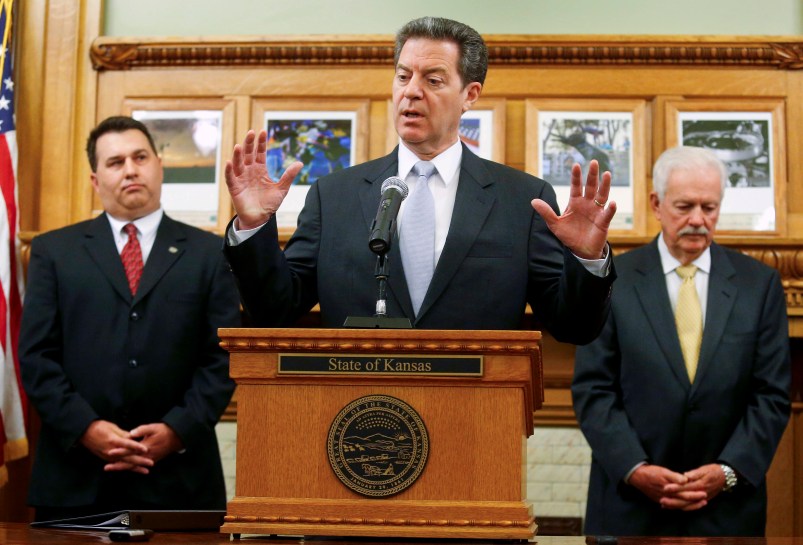As you can see, we’ve now had a watershed moment in the long-running Brownback/Kansas budgetary train wreck. The Senator-turned-Governor slashed taxes, with the tax shortfall to be made up by increased revenues driven by tax-cut fueled economic growth. The economic growth didn’t happen and the state tumbled in a severe budgetary crisis which Brownback has been trying to find some way out of for months.
Now most of the state’s Republican lawmakers have taken the plunge and violated the “Norquist Pledge” most made never to raise taxes.
But it’s important to step back from the zany headlines and the tears and the not-negligible supply-side-doubting schadenfreude to see the dark, bigger picture. The net effect of everything that has happened has been to shift a major part of the state tax burden from upper-middle class and affluent Kansans to poor and middle class Kansans.
This is the big picture story for much of what has happened in US tax policy over the last four decades. But the story is seldom quite this stark or so tightly chained together in cause and effect.
Most of this new set of tax increases is in sales taxes. Sales taxes are almost by definition regressive since they focus on consumption. But Kansas’s sales tax is particularly regressive since it doesn’t include many of the exemptions which most states make for necessities. Unlike most states, for instance, the Kansas sales tax applies to food you buy at the grocery store (though there is a small off-setting tax credit if you’re really poor.) So get rid of taxes on wealthy people’s incomes and make the money back with sales taxes on family expenditures on food and clothing. In those terms, to borrow President Bush’s phrase, the whole thing has been a catastrophic success.






